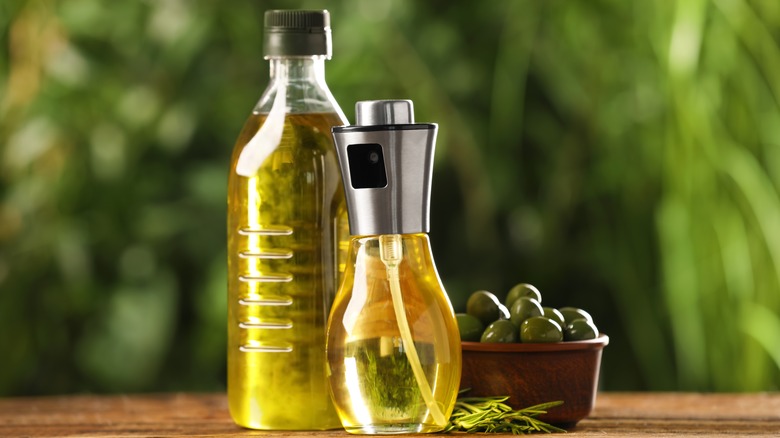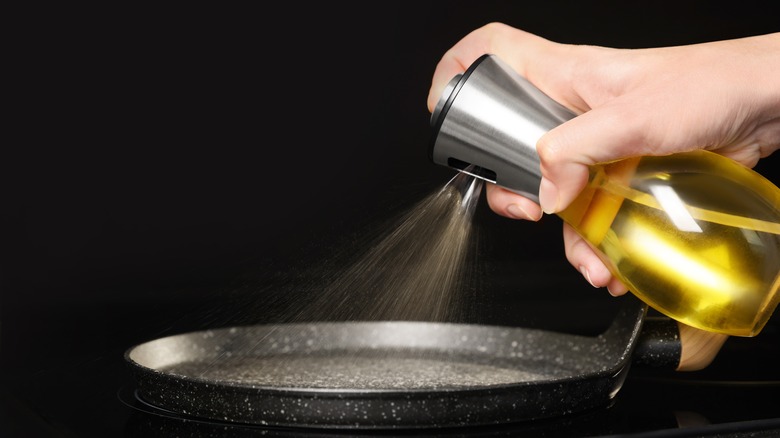The Key Difference Between Olive Oil Cooking Spray And Regular Olive Oil
Cooking spray provides an easy way to quickly grease baking dishes or oil hot pans. Using an aerosol can rather than pouring oil straight from a bottle can also help cut calories and avoid overly greasy food. However, there is a big difference between most olive oil cooking sprays and regular olive oil, and that lies in their composition.
A bottle of olive oil typically contains nothing but pure, natural oil extracted from olives. There are different varieties, like virgin, extra virgin, and light olive oil, and some bottles may have added flavors like garlic or chili. Extra virgin is basically oil that is unrefined and hasn't been treated with heat. Light or refined olive oil is just pure olive oil that has undergone processing to make it taste milder and increase its smoke point.
Olive oil spray, on the other hand, usually contains additional ingredients, such as anti-foaming agents and emulsifiers to stop separation. Undisclosed propellants are also added to push the oil out of the can. The flavor of olive oil in sprays is far less-pronounced, and while sprays often claim to contain zero calories, this is based on an extremely small serving size –- typically a fraction of a second of spraying.
Are the additives in olive oil cooking spray dangerous?
Some may wonder whether the additives in olive oil cooking spray are bad for you. The answer is that it's hard to know. Dimethyl silicone, a common foaming agent, is considered safe to consume in small amounts by the FDA, but it is a synthetic chemical found in things like cosmetics and paint.
The emulsifier most often used in olive oil spray is soy lecithin, which is also a widely-used food additive approved by the FDA. Some research suggests it may have health benefits due the protein and fiber content of soy. However, soy lecithin is often derived from genetically modified soy, which has raised concerns among some consumers. Additionally, chemical solvents are used in its extraction process.
Common propellants include carbon dioxide, nitrogen, and butane. They are, again, considered safe, but only when used in small amounts. Many cooking spray companies do not specify which propellant they use.
Both regular olive oil and olive oil sprays have their place in the kitchen, but they are different. Many naturalists and cooking enthusiasts prefer the taste of pure olive oil, especially from the best olive oil brands, making it the better choice for dishes like a flavorful salad dressing or a steak. If convenience and portion control are your priorities, olive oil spray is a handy alternative, and it makes non-stick cooking a lot easier.

